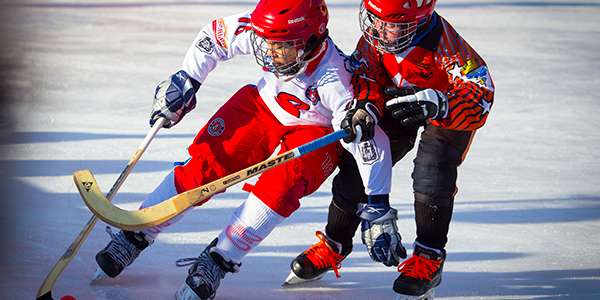
How to Approach Sibling Rivalry
Summary: Sibling rivalry in sports is natural and can be either positive or negative. Healthy competition teaches kids to manage conflict, cooperate, and develop empathy. Parents can help by emphasizing effort over outcomes, recognizing achievements outside of sports, and avoiding favoritism or comparisons.
Siblings naturally compete with each other in all areas of life; they fight for their parents’ praise and attention and compete to be recognized as the “better student” or the “better athlete.” Sports can increase sibling rivalry. Some siblings are jealous of each other and hold grudges while others show support and give encouragement.
No matter what type of environment parents create, siblings will compete. Sibling rivalry can be positive. It teaches kids how to handle conflict, how to cooperate, manage aggression and be sympathetic. Siblings can learn how to handle conflict by working through it on their own. However, parents should emphasize that fighting is not an appropriate way to settle arguments.
How can parents foster healthy levels of sibling rivalry?
Below are some tips for parents to encourage healthy levels of competition.
- Downplay success. Success is important, but not at a sibling’s expense. Kids who sit on the bench or don’t perform as well as their siblings may feel disappointed or frustrated. Parents should downplay success in order to prevent jealousy among siblings. When parents talk about one child’s success, it can only lead to resentment among siblings.
- Praise effort. Parents can encourage kids to work hard despite how well they perform. Emphasizing effort helps kids persist in the face of failure. It also gives them a sense of control over how they perform.
- Praise and show interest in non-sports activities. Parents should not overemphasize involvement in sports. Some kids are less athletic than their siblings. Parents should praise kids for what they excel in. This gives them the opportunity to stand out from their siblings. Parents should show as much excitement about non-sports activities as they do sporting events.
- Competition should stay on the field. Parents should not let competitiveness continue at home. Siblings need to take a breather.
- Do not play favorites. Parents may unknowingly support one child more than the other. This causes kids to feel they are not good enough. It’s best to avoid comparisons among siblings. These comparisons generate tension among siblings and may affect their self-esteem.
Competition is a natural part of sports. Parents can keep sibling rivalry positive by following these suggestions.
1. Emphasize Effort Over Outcome
Focus on praising your children’s hard work rather than only celebrating wins. Highlighting effort encourages persistence, builds resilience, and reduces jealousy between siblings.
2. Encourage Non-Sports Achievements
Recognize and celebrate accomplishments outside of athletics. Supporting your kids in academics, arts, or hobbies helps each child feel valued and less likely to compare themselves to siblings.
3. Avoid Favoritism and Comparisons
Treat each child equally and avoid comparing performance or success. Fair treatment prevents resentment, protects self-esteem, and keeps sibling competition healthy and positive.
Related Sports Psychology Articles
- Comparison’s Impact on Athletes Confidence
- What To Do When a Coach Plays Favorites
- Tips for Improving Competitiveness in Sports
*Subscribe to The Ultimate Sports Parent Podcast
*Subscribe to Peak Performance Sports on Youtube
Download a free sports psychology report to improve your mental game!
The Confident Sports Kid

When kids lack confidence, they doubt themselves, stop taking risks, play tentatively, and are hard on themselves. As a result, kids often lose their motivation to improve. Ultimately, these barriers keep them from enjoying sports and making the most of their physical talent.
“The Confident Sports Kid” program is actually two programs: one that teaches sports parents how to boost their kids’ confidence, and another that teaches young athletes age 8 to 18 how to improve their self talk, avoid negative thinking, overcome expectations that limit confidence, and much more. The program will help kids boost their confidence in sports and life…and enjoy sports more.
FAQ: Managing Sibling Rivalry in Sports
Q: Is sibling rivalry normal in sports?
A: Yes. Siblings naturally compete in all areas, including sports. Rivalry can teach kids to manage conflict and cooperate when handled correctly.
Q: How can parents encourage healthy competition between siblings?
A: Focus on effort instead of just winning, praise achievements in non-sports activities, and avoid comparing siblings. Support and encouragement help maintain positive rivalry.
Q: Should parents play favorites with one child?
A: No. Favoring one child can harm self-esteem and increase resentment. Treat each child’s achievements equally.
Q: How can competition stay positive at home?
A: Keep competitiveness on the field and avoid letting it spill over into family life. Encourage siblings to support each other and celebrate effort.
Q: Can sibling rivalry have benefits?
A: Yes. Healthy rivalry can build resilience, persistence, and a sense of control, teaching important life skills beyond sports.
Kids Sports Psychology expert Patrick Cohn, Ph.D. has helped athletes for over 35 years to enhance their performance. Dr. Cohn earned a master’s degree in sports psychology from CSUF and a Ph.D. from the University of Virginia, specializing in Applied Sports Psychology. Today, he is the president and founder of Peak Performance Sports, LLC in Orlando, Florida.
